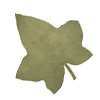


|
My friend Elsa always talked to plants. I thought she was crazy. Safely insane, but definitely disassociated from reality. Until the plants laughed at me. Autumn of 1980, returning home from a rare dinner out after a healing intensive at my land in the Catskills, I stopped to get my mail. An unusual envelope contained a $500 money order, signed "Mother Nature" and this note: "It's my birthday and I could think of no better gift than giving you the means to build a shelter for your teaching." How wonderful. How perplexing. Even way back then, $500 would not put down a floor, let alone walls or a roof! What building could I create with such a large gift of such a small sum? In a waking dream I saw the answer. I bought a tipi. It arrived. I put it up. I decided to sleep in it, at least until it got too cold. Have you ever slept outside? If so, you know it is very noisy outside at night. The dark is filled with sounds: mosquitoes and katydids, crickets and frogs, geckos and bats, whippoorwills and coyotes. Those sounds soon became background noise to my nights in the tipi. Background to the thunderous noises made by the monsters just outside the tipi. It's amazing how loud a small animal moving in the dark is. No monsters were out there, of course, just the night shift: possums, skunks, raccoons, flying squirrels, and the occasional deer. As I began to recognize the "monster" sounds, they became business-as-usual noises, and I relaxed even more. That's when the laughter began. At first it was a quiet chuckle, mirth contained. Then it grew and swelled until it was a belly laugh. Like the rolling of thunder across my mountains, the laughter spread and reverberated. "Who is laughing?" I thought. "We are," came the reply in my mind. "Who?" "Us, the plants." "Wow! I am." "That's how people learned to use us. They listened to us. Just as you are." Thus began my lessons from the plants. They have continued until this very day. And will, most likely, continue at least until my death. "I want everyone to be able to hear you," I told the plants one summer. "No problem," the plants replied. "Remove your shoes and socks; allow the energy of the earth and the energy of the stars to mingle in your body. Take off your glasses and contact lenses; allow yourself to see as you see, not as you are supposed to see. Spend less time at high speeds in metal containers; allow your timing to be set by the sun and the moon, the season and the weather. Sleep in a round structure. Our voices get caught in corners." Do you want to contact the devic realm? Find the fairies? Talk with the plants? The simple answer is: "Be in Nature, not on your terms, but on Hers. Put your bare feet on the ground. Be quiet. Be receptive." The slightly more complicated answer is: "Choose one wild plant, small or large. Breathe with it for at least ten minutes every day. Be barefoot. Be quiet. Be receptive." As you open, you will discover chaos. When asked how to distinguish a wild plant from a cultivated one, I say: "Cultivated plants are neatly planted; wild plants flourish in chaos." Chaos is a treat to fairies and a threat to humans. We like fixity, and dislike change. Nature knows that fixity is death. Life is change. Balance is the step before death. Life is dynamic disequilibrium, never static. Life grows, changes, ages, gets diseased, rots, molds, and is recycled into more life; it is never perfect, never done. Life is chaotic. Death is rigid. It resists and refuses to interact; it holds itself aloof; it is in control. Nature is chaotic. It doesn't like straight lines. When I am in the woods, the path curves, the trees have fallen helter-skelter, the wildflowers bloom in impossible, improbable places, there is always a miracle. To describe the living presence of Nature in her creative chaotic wholeness, we can use the words "deva" and "fairy". Fairies flee gardens planted in neat rows. To attract fairies, practice being at ease with being a little out of control. Are fairies and devas different? Fairies are in the middle of it all; devas are "above it all". Fairies are local; devas are international. Fairies are flighty, flirty, changeable; devas are responsible, staid, dependable. Fairies sparkle; devas emanate. Fairies party; devas oversee. Fairies may be invited into one's garden; no one would dare ask a deva to do anything. (A deva may well ask you to do something, however.) Lore and legend have it that the fairies spend half the year underground and half the year above ground. The fairy gate opens May 1, on May Day. It closes October 31, on the Day of the Dead. Fairies only frolic in wild places, so leave a little corner of your cultivated land wild - a "Fairy Corner" where chaos can reign. To invite the fairies: On or near to May Day Eve, eat delicious foods, drink ravishing drinks, enjoy stirring music - better yet - make intoxicating music, sing, dance, take off your clothes, expand your senses, fall in love. If you invite fairies to your home and grounds, remember: Fairies love fun, best to laugh at what they do. Fairies love to confuse things, best to delight in it. For fairies can be mean, and if you're sullen, they can cause all number of small ills. It is said that fairies like milk and pineapples. It is not unwise to leave them small gifts. "We are the devas. We are the fairies. We are the trees. We are the rocks. We are the blooming plants and the floating spoors. We are the voice of Nature. We are Green Blessings." Susun
Weed For
permission to reprint this article, contact us at:
susunweed@herbshealing.com Vibrant,
passionate, and involved, Susun Weed has garnered
an international reputation for her groundbreaking
lectures, teachings, and writings on health and
nutrition. She challenges conventional medical approaches
with humor, insight, and her vast encyclopedic
knowledge of herbal medicine. Unabashedly pro-woman,
her animated and enthusiastic lectures are engaging
and often profoundly provocative. Susun
is one of America's best-known authorities on herbal
medicine and natural approaches to women's health.
Her four best-selling books are recommended by expert
herbalists and well-known physicians and are used
and cherished by millions of women around the world.
Learn more at www.susunweed.comSusun Weed’s
books include: Wise
Woman Herbal for the Childbearing Year This article is © copyright Susun S. Weed Republished here with kind permission. |
|

Gaia's Garden Library
Non Fiction Section : Gaia's Garden Herblore | Susun S. Weed Articles | Articles and Musings
Fiction Section : Short Stories & Prose| As Told
By Cat | Public Domain Texts| Poetry
Shop | Library | Gallery | Forum | Contact | Links








